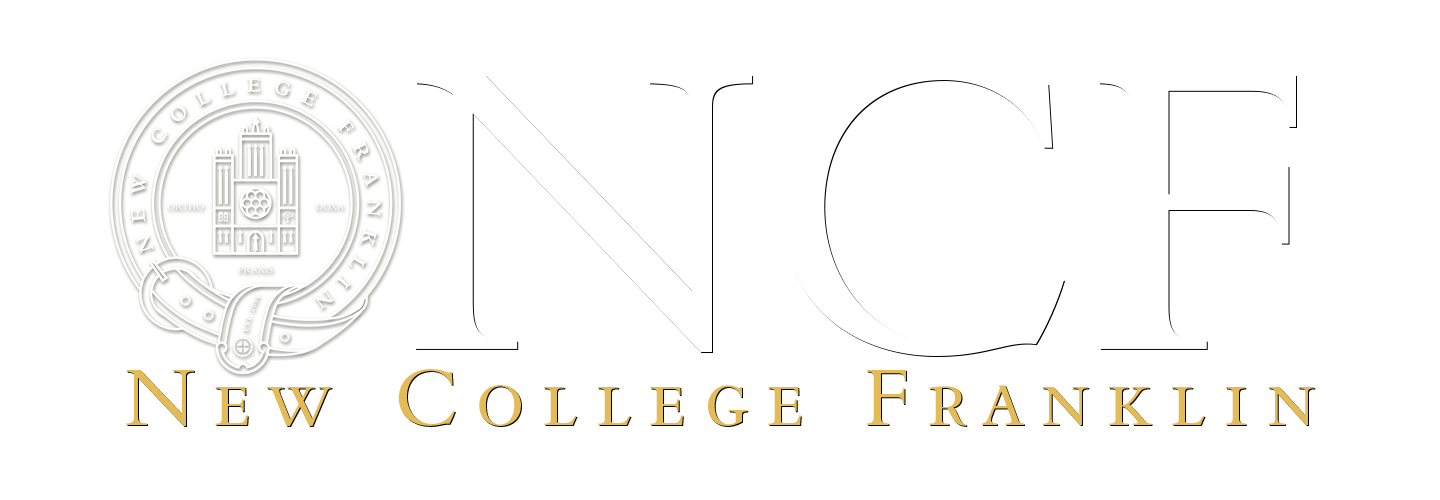Moral Philosophy
Moral Philosophy is at the heart of the curriculum because it embodies a key aspect of New College Franklin’s philosophy of knowledge.
Knowledge is cumulative and poetic; we study all things for the sake of knowing God, and all things gain meaning and purpose within God’s sovereign plan overall. God’s world involves many parts that are best seen in light of the connections, relationships, and harmonies in God’s united, sovereign plan.
The pursuit of Moral Philosophy demonstrates the decrees of God as executed in the progression of ideas and literature through major epochs of history. In each year of Moral philosophy, the four terms are organized around four themes: Anthropology & Psychology, Ethics, Politics, and Transcendence. These four themes provide overarching structure in our pursuit of wisdom for the purpose of right action.

-
Moral Philosophy I: Arts, Letters, and Foundations
The first half of this course serves as an introduction to the nature of classical education, to a cosmological view of learning, and to the fundamental themes and questions of a classical liberal arts education. In the second half of the year, students explore the nature of literature (poetics proper), the nature of the human city, and consider diverse approaches to understanding God and man in the Ancient period.
-
Moral Philosophy II: Antiquity
The second year of Moral Philosophy focuses on Antiquity—primarily Greek and Roman sources. Students examine history, literature, ethics and philosophy in the ancient world, spanning from the creation to St. Augustine and Boethius in the 5th century. Particular emphasis is placed on themes of homecoming, the nature of the polis, the science of ethics, and the foundations of classical physics and metaphysics, Major authors include Homer, Augustine, Plato, and Aristotle.
-
Moral Philosophy III: Medieval and Renaissance World
The third year of Moral Philosophy covers the Medieval and Renaissance World, turning to the rich period in which Christian culture, theology, and poetry uniquely flourished. Students trace the transition from the pagan world to the establishment and growth of Christendom in the medieval world, touching also upon the Renaissance, the Reformation, and the emergence of Enlightenment thought. They explore the relationship between Athens and Jerusalem, between medieval philosophy and theology and that of their own traditions. They also immerse themselves in the great poetic works of such authors as Chaucer, Dante, Shakespeare, Donne.
-
Moral Philosophy IV: Modernity
The fourth year of Moral Philosophy explores the Renaissance, the revolutionary world of the Enlightenment, and the modern world, examining the development of the modern mind and culture. Students synthesize much of their learning from previous years in order to analyze, critique, and locate themselves in the problems and complexities of modernity. Cartesian uncertainty and dualism, skepticism, existentialism, and scientism are contextualized by revealed truth, Divine Goodness, and the realities of the human person. The particular virtues of faith, hope, and love are the framework through which students will be directed to read the modern and contemporary landscape.
